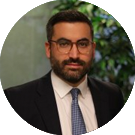Get the future you want: Make a financial plan – Part 6: Tax Deferrals
In the previous article of this series, Part 5, we discussed two income sources: the long-term but temporary one of salary; and the permanent one of investments. We looked at how investments keep working for you 24/7, and therefore how advisable it is to invest asap in them. But which kinds of investment are right for you? We looked at that, too, from registered savings plans to real estate and more. Now, in the sixth and final part of our series, we turn to the dread topic of taxes. Actually, not so dread, once you start putting money into tax deferrals. Let’s explore this important, intriguing topic now.
Pssst!: It’s not how much you make, but how much you keep
People tend to adopt Mark Twain’s attitude to taxes: a negative one, i.e., it’s taxes and death that ominously await humankind.
But taxes can actually be a profitable, productive part of your overall wealth during your life! Here’s the key to what’s important: It’s not how much you make, but how much you keep.
The government taxes types of income –interest income, capital appreciation income, dividend income – differently. That’s the subject of a future article. For now, let’s concentrate on what’s immediately to your benefit: tax deferral.
Make no mistake. Tax avoidance is illegal! But tax reduction and deferral are totally within the law and vital to your financial planning. Not only that: The government wants you to take advantage of these options.
In fact, the Canada Revenue Agency gives you financial vehicles for investing your money:
- Registered Retirement Savings Plans (RRSPs)
- Registered Education Savings Plans (RESPs)
- Tax-Free Savings Accounts (TFSAs)
- Tax insured accounts.
How do the above all work for you? Discuss them with your financial advisor. The discussion will pay off – literally – for you.
Look ahead –way ahead
Okay, let’s address the topic that makes people uncomfortable: your wealth after your death. This is another topic to discuss with your advisor, though you may not like to think about it. How much of your money and earnings do you want to pass on to your family, charities and so on? Again, this is looking way ahead, maybe further ahead than you want to. No one likes to think about their death and what happens after.
But trust me, you will find it satisfying to plan your estate. Being organized about your estate gives you a sense of peace; of security and satisfaction. You’re protecting your family.
And, when you prepare for your estate, you can build some tax deferrals into it! Mark Twain would approve.
As mentioned above, there’s a lot more to discuss about taxes and finances. I’ll address that in future columns. For now, I want to emphasize that tax deferral plus investment equals wealth.
A final tax-deferral tip: Re-evaluate your plan every year with your financial advisor. Monitor it. Update the plan if there are any material changes to your life.
Steven Bicego, B.Comm, is aFinancial Advisor with the Ciccone-McKay Financial Group. Please feel welcome to contact Steven with any questions at 604-688-5262 or steven@ciccone-mckay.com.

 By Steven Bicego, B.Comm | Insurance and Investment Advisor
By Steven Bicego, B.Comm | Insurance and Investment Advisor